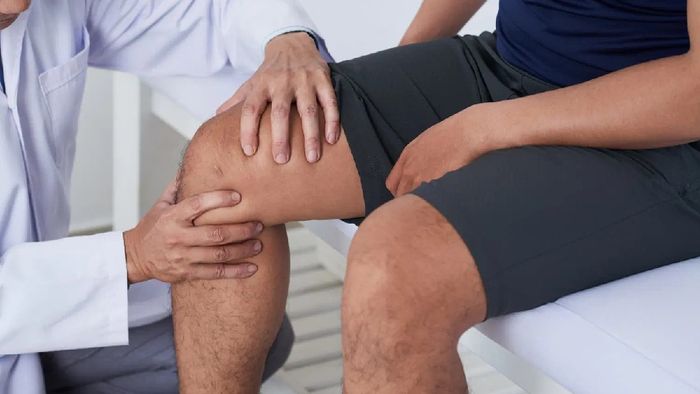Managing Knee Joint Pain at Home: Quick Tips for Relief and Recovery
Knee joint pain can be a debilitating condition, affecting individuals of all ages and lifestyles. Whether it's due to injury, arthritis, or overuse, finding relief from knee discomfort is crucial for maintaining mobility and quality of life.

- Jun 08, 2024,
- Updated Jun 08, 2024, 11:08 PM IST
Knee joint pain can be a debilitating condition, affecting individuals of all ages and lifestyles. Whether it's due to injury, arthritis, or overuse, finding relief from knee discomfort is crucial for maintaining mobility and quality of life. While consulting a healthcare professional is essential for a proper diagnosis and treatment plan, there are several effective home remedies and lifestyle adjustments that can help alleviate pain and promote healing. Here are some quick tips for treating knee joint pain at home:
1. Rest and Protect:
Allow your knee time to rest and avoid activities that exacerbate pain or strain the joint.
Use supportive devices like knee braces or wraps to stabilize the knee and reduce stress on the joint during movement.
2. Ice Therapy:
Apply ice packs or cold compresses to the affected knee for 15-20 minutes several times a day to reduce inflammation and numb pain.
Be sure to wrap the ice pack in a cloth to prevent skin irritation and avoid applying ice directly to the skin.
3. Heat Therapy:
Use heat therapy, such as warm compresses or heating pads, to relax muscles, increase blood flow, and alleviate stiffness in the knee joint.
Alternate between cold and heat therapy for optimal pain relief and recovery.
4. Elevation:
Elevate your leg to reduce swelling and improve circulation, especially when resting or sleeping.
Prop your knee up with pillows or cushions to keep it elevated above the level of your heart.
5. Gentle Exercise:
Engage in low-impact exercises and stretches that strengthen the muscles around the knee joint, such as swimming, cycling, or tai chi.
Avoid high-impact activities or movements that put excessive strain on the knees, such as running or jumping.
6. Weight Management:
Maintain a healthy weight to reduce pressure on the knees and minimize stress on the joints.
Follow a balanced diet rich in anti-inflammatory foods like fruits, vegetables, whole grains, and lean proteins to support joint health.
7. Over-the-Counter Pain Relief:
Take over-the-counter pain medications like ibuprofen or acetaminophen as directed to alleviate mild to moderate knee pain and inflammation.
Use topical pain relievers or ointments containing menthol or capsaicin for localized relief.
8. Joint Supplements:
Consider taking supplements like glucosamine, chondroitin, or omega-3 fatty acids, which may help improve joint health and reduce knee pain over time.
Consult with your healthcare provider before starting any new supplements to ensure they're safe and appropriate for you.
9. Maintain Proper Posture:
Practice good posture and body mechanics to avoid unnecessary strain on the knees, especially when standing, sitting, or lifting objects.
Use supportive footwear with cushioned insoles and adequate arch support to reduce pressure on the knees during daily activities.
10. Stay Hydrated:
Drink plenty of water throughout the day to keep your body hydrated and maintain optimal joint lubrication and function.
Limit your intake of sugary and caffeinated beverages, as they can contribute to dehydration and inflammation.
By incorporating these home remedies and lifestyle modifications into your daily routine, you can effectively manage knee joint pain, improve mobility, and enhance your overall quality of life. However, if your knee pain persists or worsens despite home treatment, it's essential to seek medical attention promptly to address any underlying issues and prevent further complications. Remember, listening to your body, practicing self-care, and seeking professional guidance when needed are key to promoting long-term knee health and well-being.